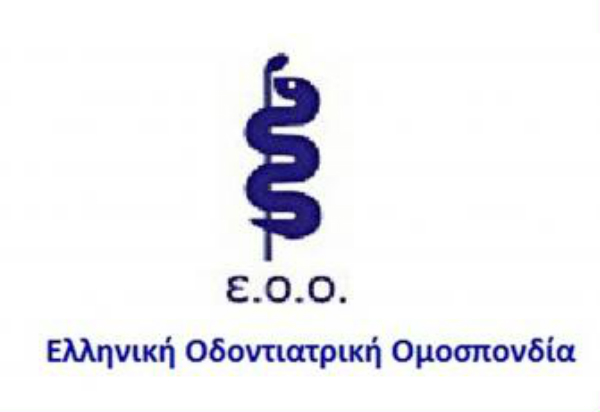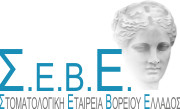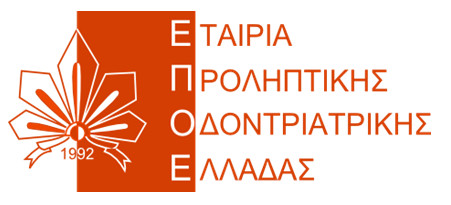This is a competitive post-graduate specialty program in Paediatric Dentistry, commencing September 10th every second year, with up to ten new positions for postgraduate students offered each time. Up to 3 of them may be for non-EU citizens. It is designed to prepare students for patient care in a University dental clinic (currently accommodating 6 dental units) and in the hospital setting (currently affiliated general hospital Agios Demetrios). It is a full time 3-year (6 semesters) program with theoretical/clinical/research duties in the English language and no less than 180 total ECTS credits, awarding a MSc (Master of Science Degree) in Paediatric Dentistry. One further year (tuition waved) may be granted for completion and submission of the required Master’s thesis to Aristotle University Dental School together with its related manuscript to an international peer review journal.
The program is in the process of applying for accreditation by the European Academy of Paediatric Dentistry (EAPD).
OVERVIEW
Description
ENTRY REQUIREMENTS
Applicants must fulfill all the following requirements to be considered eligible for admission.
-
An undergraduate dental degree which is recognisable by the Greek Education authorities (please contact the Hellenic NARIC for further information: http://www.doatap.gr/en/index.php, and e-mail at: information_dep@doatap.gr well in advance of application submission). Recognition by NARIC must have been completed by the end of first semester of studies.
- Certification of Proficiency in English language or similar (level C2) is a requirement for admission.
- Provide the grades of dental courses of their dental degree including the scores of undergraduate courses for paediatric dentistry and related subjects.
- A curriculum vitae with recent face photograph, candidate’s achievement in Paediatric Dentistry during undergraduate studies, possible publications or congress presentations, research or other scientific activity and possession of other postgraduate studies or titles.
- Proof of previous clinical experience, preferably 2 years. One year of general dental experience is mandatory for entering the programme.
- At least two letters of recommendation, one from their teaching Professor of Paediatric Dentistry and one from a related subject.
- The overall personality and character qualities of the candidate, as drawn from an interview (this can be arranged through telecommunication if necessary)
A fee of 100 Euros applies for application processing.
Following the official announcement, the related hard copy application should be submitted in due time by the candidate, in person or by registered mail, to the postgraduate program secretariat (see www.dent.auth.gr). Documents may be e-mailed in an electronic form to the secretariat at akanellaki@dent.auth.gr and forwarded to the program director at koarap@dent.auth.gr.
MEMBERS OF FACULTY AND STAFF
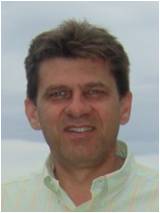
Associate Professor Konstantinos Arapostathis graduated from the Dental School of the Aristotle University of Thessaloniki, Greece (April 1989). Acquired the specialty of Pediatric Dentistry from St. Christopher’s Hospital for Children, Philadelphia, USA (June 1994), received his PhD from the Dental School of Aristotle University of Thessaloniki (April 2004) and acquired the Masters in Laser Dentistry (MSc) from Genoa University, Italy (November 2014). Since November 1995, he exclusively practices pediatric dentistry and the last 7 years works also using dental lasers on pediatric patients. He is the author or co-author of 58 publications, (Citations 1045, h-index 16, i10-index 20, Google Scholar 2022), author of the chapter “Laser-assisted Pediatric Dentistry” (In: Coluzzi DJ and Parker S, Lasers in Dentistry, Springer 2017), co-author of three chapters in the textbook “Pediatric Dentistry” (Kotsanos N, Sarnat H, Park K, Springer 2022) and has participated with over 200 presentations/ lectures at scientific conferences. Has a special interest and experience in dental rehabilitation for people with disabilities as well as in research and clinical treatment of children and adolescents with dental phobia, anxiety and problems of cooperation in the dental office.
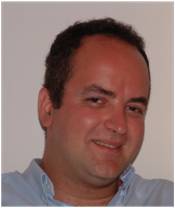
Dr Aristidis Arhakis graduated the Dental School of Aristotle University of Thessaloniki, Greece (DDS) (1997). He followed the postgraduate course of Paediatric Dentistry in Leeds Dental Institute, Great Britain (MDentSCI) (1999-2001). He worked as a Community Dental Officer (CDO) (Paediatric Dentistry) in Community of Bradford, Great Britain (2001-2002). He received his PhD at the Department of Preventive Dentistry, Periodontology and Implant Biology of the Dental School of Aristotle University of Thessaloniki (2013). He is a fellow teaching/clinical associate of the Pediatric Dentistry Department since September 2015. He is an active member of the European Academy of Paediatric Dentistry (EAPD) and the International Association of Paediatric Dentistry (IAPD). He is a member of the Board of the Hellenic Society of Preventive Dentistry (HSPD) and the Hellenic Society of Paediatric Dentistry (HSPD). He has done numerous of presentations in International conferences and Publications in International Journals regarding Dental Trauma, Saliva, Dental fear, and assessment of Dental fear through Saliva.
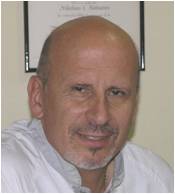
Dr Nikolaos Kotsanos is a pediatric dentist, teaching continuously as faculty since 1984 in the Dental School, Aristotle University of Thessaloniki, except for 12 months specialization studies (1990-91) in Pediatric Dentistry at New York University, USA. He was professor and chairman of the Department of Paediatric Dentistry from 2005-2021. He has studied dentistry at Aristotle U. from 1972 to 1977. During 1978-1982, he did his PhD under a grant from the Greek State Scholarships Foundation for 3.5 years and worked for a further 6 months as a Senior House Officer at the Bristol University Dental School and Hospital, England. His name appears in 80 publications in international scientific journals, having received 1600 citations, and in at least 50 publications in Greek scientific journals. He is the editor of the textbook ‘Paedodontiatriki’ (in Greek) published in 2015 and first editor of the textbook Pediatric Dentistry published in 2022 by Springer Nature. He has served as a reviewer in more than 30 international scientific journals. He has been in the supervising team of 5 doctoral theses and the supervisor of 15 Master theses, 3 of which with best presentation awards in international paediatric dental congresses. Two of his research proposals received a ‘Koulourides’ grant by Procter & Gamble Hellas in 1997 and 1999. He has been an invited speaker at Bergen Norway, Nikosia and Limassol Cyprus, Tokyo and Okayama Japan, Seoul S. Korea, Glasgow UK, Lugano Switzerland.
Teaching is also clinically assisted by other certified Pediatric dentists. There is a number of chair side assistants, either newly graduated dentists or undergraduate students. Except for offering some clinical pediatric dentistry experience to them, this procedure is employed for efficient 4-hand clinical practice training of the postgraduate students.
COURSE DETAILS
Curriculum
General curriculum provides knowledge and training on all topics necessary to produce a competent pediatric dentist. It is designed to advance the residents’ educational experiences, enhance their ability to think critically and independently and to communicate accurate information both clearly and effectively. Residents will learn to work with consultants and clinicians in other dental specialties and in medical or allied health fields. Lectures, seminars and practical exercises extend on the theoretical foundations of the biological, medical and dental disciplines related to Pediatric Dentistry. These last during the whole of the first 4 semesters for 1 or 2 hours daily and include:
- Child’s fear and anxiety – Iatrogenic Pain
- Behavior quidance and management – desensitization
- Cardiopulmonary resuscitation – first aid
- Childhood caries – Prevention of oral diseases
- Restorative dentistry for children I, II, III – including dental anomalies.
- Paediatric endodontics – The emergency
- Minimal sedation (nitrous oxide) – General anesthesia
- Diagnosis – Treatment Plan (for special cases)
- Oral Pathology and minor oral surgery in children
- Dental trauma
- Hospital patient dental care – Young patients with disabilities
- Craniofacial growth and development – malocclusion
- Craniofacial anomalies – syndromes I, II – multidisciplinary approach
There are additional seminars during the first two semesters in core courses, e.g. research methodology and biostatistics, advanced oral biology and genetics, paediatrics and anesthesiology, dental materials.
Practical exercises cover manual dexterities for: deciduous teeth preparation for restorations including prefabricated molar crowns placement, root canal procedures, band positioning, wire bending for space problem removable appliances.
Clinical curriculum consists of ample patient care opportunities in healthy and chronically ill or disabled children and adolescents, both in the postgraduate clinic and in affiliated hospital for the general anaesthesia cases. This clinical training will advance the residents’ diagnostic abilities, clinical knowledge and skills, as well as their critical judgment. Additional experiences in related medical areas provide residents with a profound understanding of comprehensive care with multidisciplinary approach.
Research activities include preparing for presentations in international paediatric dental congresses and the submission of a Master’s thesis and a manuscript to an international peer review journal. They take place in collaboration with other disciplines in all University facilities, often with participation of other international researchers. Since the commencement of this postgraduate program in Pediatric Dentistry in 2008, there have been 23 publications (in collaboration with international researchers, from US, Switzerland and Japan) in peer review international dental journals by equal number of graduated PGs (listed below).
There is guidance in undergraduate teaching for gaining such experience and undergraduate clinic supervision. Various other activities interacting with society, such as visits to kindergartens, institutions, etc, are offered.
Faculty members and teaching associates of the department are assigned to the clinical teaching and seminars, including treatment under nitrous oxide minimal sedation, and supervising research activities. For specific training such as in related paediatric subjects, dentistry under general anesthesia, etc. there is collaboration with other dental and medical departments. The dental treatment under general anesthesia is accomplished by the 2nd and 3rd year postgraduate students under supervision 1-2 days per month.
Seminars and literature review are in English language. The reading material is in English. For entering the clinic, students are required to have a basic understanding of Greek, as explained in the ENTRY REQUIREMENTS.
In order to fulfill the program requirements and graduate a student must:
- Be successful in getting passing grades at each semester.
- Present a list of complete treatment and document follow-ups of 80 paediatric dental patients at the end of his 3-year training program.
- Adequately present in public 6 of the above cases with photographs and recall radiographs. Treatment needs should cover various aspects of Paediatric dentistry e.g. early childhood caries, dental trauma, pulp treatments, dental anomalies, special needs patients, general anaesthesia, etc.
- Submit and support a Master’s thesis to a 3-member examination committee and prepare and submit the related manuscript to a peer review international journal.
RESEARCH ACTIVITY
Research activities related to Pediatric Dentistry take place in collaboration with other disciplines in all University facilities, often with participation of other international researchers. Since the commencement of the post graduate program in Pediatric Dentistry in 2008, there have been 23 Master theses and equal number of publications (including those in review process) in peer review international dental journals by current graduates, (in collaboration with international researchers).
Current status of graduates and current postgraduate students and their Theses
List of published papers by program graduates:
- Koleventi A, Sakellari D, Arapostathis KN, Kotsanos N. Periodontal Impact of Preformed Metal Crowns on Permanent Molars of Children and Adolescents: A Pilot Study. Pediatr Dent. 2018 Mar 15;40(2):117-121.
- Chatzistavrou X, Lefkelidou A, Papadopoulou L, Pavlidou E, Paraskevopoulos KM, Fenno JC, Flannagan S, González-Cabezas C, Kotsanos N, Papagerakis P. Bactericidal and Bioactive Dental Composites. Front Physiol. 2018 Feb 16;9:103.
- Boka V, Arapostathis K, Charitoudis G, Veerkamp J, van Loveren C, Kotsanos N. A study of parental presence/absence technique for child dental behaviour management. Eur Arch Paediatr Dent. 2017 Dec;18(6):405-409.
- Papageorgiou SN, Dimitraki D, Kotsanos N, Bekes K, van Waes H. Performance of pit and fissure sealants according to tooth characteristics: A systematic review and meta-analysis. J Dent. 2017 Nov;66:8-17.
- Boka V, Arapostathis K, Karagiannis V, Kotsanos N, van Loveren C, Veerkamp J. Dental fear and caries in 6-12 year old children in Greece. Determination of dental fear cut-off points. Eur J Paediatr Dent. 2017 Mar;18(1):45-50.
- Kaklamanos EG, Lazaridou D, Tsiantou D, Kotsanos N, Athanasiou AE. Dental arch spatial changes after premature loss of first primary molars: a systematic review of controlled studies. Odontology. 2017 Jul;105(3):364-374.
- Boka V, Arapostathis K, Kotsanos N, Karagiannis V, van Loveren C, Veerkamp J. Relationship between Child and Parental Dental Anxiety with Child’s Psychological Functioning and Behavior during the Administration of Local Anesthesia. J Clin Pediatr Dent. 2016;40(6):431-437.
- Boka V, Arapostathis K, Karagiannis V, Kotsanos N, van Loveren C, Veerkamp J. The effect of parental presence on the child’s perception and co-operation during dental treatment. Eur Arch Paediatr Dent. 2016 Dec;17(6):495.
- Fragkou S, Balasouli C, Tsuzukibashi O, Argyropoulou A, Menexes G, Kotsanos N, Kalfas S. Streptococcus mutans, Streptococcus sobrinus and Candida albicans in oral samples from caries-free and caries-active children. Eur Arch Paediatr Dent. 2016 Oct;17(5):367-375.
- Provatenou E, Kaklamanos EG, Kevrekidou A, Kosma I, Kotsanos N. Erosive Tooth Wear and Related Risk Factors in 8- and 14-Year-Old Greek Children. Caries Res. 2016;50(4):349-62.
- Katsouda M, Provatenou E, Arapostathis K, Coolidge T, Kotsanos N. The Greek version of the Gagging Assessment Scale in children and adolescents: psychometric properties, prevalence of gagging, and the association between gagging and dental fear. Int J Paediatr Dent. 2017 Mar;27(2):145-151.
- Pikramenou V, Dimitraki D, Zoumpoulakis M, Verykouki E, Kotsanos N. Association between dental caries and body mass in preschool children. Eur Arch Paediatr Dent. 2016 Jun;17(3):171-5.
- Kosma I, Kevrekidou A, Boka V, Arapostathis K, Kotsanos N. Molar incisor hypomineralisation (MIH): correlation with dental caries and dental fear. Eur Arch Paediatr Dent. 2016 Apr;17(2):123-9.
- Dionysopoulos D, Koliniotou-Koumpia E, Helvatzoglou-Antoniades M, Kotsanos N. In Vitro Inhibition of Enamel Demineralisation by Fluoride-releasing Restorative Materials and Dental Adhesives. Oral Health Prev Dent. 2016;14(4):371-80.
- Kevrekidou A, Kosma I, Arapostathis K, Kotsanos N. Molar Incisor Hypomineralization of Eight- and 14-year-old Children: Prevalence, Severity, and Defect Characteristics. Pediatr Dent. 2015 Sep-Oct;37(5):455-61.
- Papageorgiou SN, Dimitraki D, Coolidge T, Kotsanos N. Publication bias & small-study effects in pediatric dentistry meta-analyses. J Evid Based Dent Pract. 2015 Mar;15(1):8-24.
- Boka V, Arapostathis K, Vretos N, Kotsanos N. Parental acceptance of behaviour-management techniques used in paediatric dentistry and its relation to parental dental anxiety and experience. Eur Arch Paediatr Dent. 2014 Oct;15(5):333-9.
- Boka V, Trikaliotis A, Kotsanos N, Karagiannis V. Dental caries and oral health-related factors in a sample of Greek preschool children. Eur Arch Paediatr Dent. 2013 Dec;14(6):363-8.
- Tsiantou D, Lazaridou D, Coolidge T, Arapostathis KN, Kotsanos N. Psychometric properties of the Greek version of the Toronto Composite Empathy Scale in Greek dental students. Eur J Dent Educ. 2013 Nov;17(4):208-17.
- Fragkou S, Nikolaidis A, Tsiantou D, Achilias D, Kotsanos N. Tensile bond characteristics between composite resin and resin-modified glass-ionomer restoratives used in the open-sandwich technique. Eur Arch Paediatr Dent. 2013 Aug;14(4):239-45.
- Arhakis A, Athanasiadou E, Vlachou C. Social and Psychological Aspects of Dental Trauma, Behavior Management of Young Patients Who have Suffered Dental Trauma. Open Dent J. 2017 Jan 31;11:41-47.
- Arhakis A, Boutiou E. Etiology, Diagnosis, Consequences and Treatment of Infraoccluded Primary Molars. Open Dent J. 2016 Dec 30;10:714-719.
- Arhakis A, Karagiannis V, Kalfas S. Salivary alpha-amylase activity and salivary flow rate in young adults. Open Dent J. 2013;7:7-15.
- Trikaliotis A, Boka V, Kotsanos N, Karagiannis V, Hassapidou M. Short communication: Dmfs and BMI in preschool Greek children. An epidemiological study. Eur Arch Paediatr Dent. 2011 Jun;12(3):176-8.
- Lazaridou D, Tsiantou D, Coolidge T, Arapostathis KN, Kotsanos N. Predictors of Dental Patients’ Satisfaction in a Greek Sample. British Journal of Medicine & Medical Research, 2015, 7(6): 470-480.
- Paschalidou M, Athanasiadou E, Arapostathis K, Kotsanos N, Koidis PT, Bakopoulou A, Theocharidou A. Biological effects of low-level laser irradiation (LLLI) on stem cells from human exfoliated deciduous teeth (SHED). Clin Oral Investig. 2019 May 8. doi: 10.1007/s00784-019-02874-4. [Epub ahead of print]
- Dimitraki D, Papageorgiou SN, Kotsanos N. Direct pulp capping versus pulpotomy with MTA for carious primary molars: a randomised clinical trial. Eur Arch Paediatr Dent. 2019 Feb 20. doi: 10.1007/s40368-019-00419-7. [Epub ahead of print]
- Katsouda M, Tollili C, Coolidge T, Simos G, Kotsanos N, Arapostathis KN. Gagging prevalence and its association with dental fear in 4-12-year-old children in a dental setting. Int J Paediatr Dent. 2018 Nov 7. doi: 10.1111/ipd.12445. [Epub ahead of print]
- Ntaoutidou S, Arhakis A, Tolidis K, Kotsanos N. Clinical evaluation of a surface pre-reacted glass (S-PRG) filler-containing dental sealant placed with a self-etching primer/adhesive. Eur Arch Paediatr Dent. 2018 Dec;19(6):431-437.
- Dermata A, Papageorgiou SN, Fragkou S, Kotsanos N. Comparison of resin modified glass ionomer cement and composite resin in class II primary molar restorations: a 2-year parallel randomised clinical trial. Eur Arch Paediatr Dent. 2018 Dec;19(6):393-401.
- Exarchou EL, Kotsanos I, Kotsanos N (2019) Use of Mouthguards by Amateur Basketball Athletes in Greece and The USA. Trauma Cases Rev 5:071. doi.org/10.23937/2469-5777/1510071.
- Athanasiadou E, Paschalidou M, Theocharidou A, Kontoudakis N, Arapostathis K, Bakopoulou A. Biological interactions of a calcium silicate based cement (Biodentine™) with Stem Cells from Human Exfoliated Deciduous teeth. Dent Mater. 2018 Dec;34(12):1797-1813.
- Daskalaki Z, Alifakioti E, Arhakis A. Aesthetic treatment of dental fluorosis in a 9-year-old girl: Case report. Balkan Journal of Dental Medicine. 2019;23(3),157-162.
- Dermata A, Papageorgiou SN, Kotsanos N. Three-year performance of a nano-filled resin-modified glass ionomer cement in class II primary molar restorations. Eur Arch Paediatr Dent. 2021 Jun;22(3):425-432.
- Siokis V, Michailidis T, Kotsanos N. Tooth-coloured materials for class II restorations in primary molars: systematic review and meta-analysis. Eur Arch Paediatr Dent. 2021 Dec;22(6):1003-1013.
STUDYING IN THESSALONIKI
Thessaloniki is the second-largest city in Greece, the capital of the region of Greek Macedonia and a Metropolis in the Balkan Peninsula. Situated in the Gulf of Thermaikos on the Aegean Sea, the city is well known for its historical heritage, natural beauty, unrivalled sea view, but mostly for its youthful and upbeat flavour. With a population of 1.3 million, Thessaloniki has kept its friendly and laid-back character, making it an ideal student destination, easy to settle in and get around. Whatever your style is, this city will charm you with its rich cultural life, its large number of monuments, its exquisite cuisine, the vivid nightlife and beautiful surroundings.
Thessaloniki’s history spans over 2300 years. The city was founded around 315 BC by King Cassander of Macedon. An important metropolis in the Roman period, Thessaloniki was the second largest and wealthiest city of the Byzantine Empire. It is a beautiful city built between the sea and the mountain. The architecture is the direct result of the city’s position at the centre of all historical developments in the South East Europe. The Byzantine Churches, the White Tower, several Roman and Ottoman remains and the Upper City are only some of the sites that enhance Thessaloniki’s charm.
Thessaloniki is a modern European city. However it has relatively low cost of living and can satisfy the needs of students’ budget. Key crossroad between east and west, Thessaloniki since its establishment, 2300 years ago, has always been a diverse and multicultural city. Today, with students from all over the world the city celebrates its diversity and international character. Though a big city, Thessaloniki has kept its friendly character and is considered one of the safest cities to study in.
Life in Thessaloniki can never be boring. With Aristotle University being the biggest one in Greece, the most energetic student population and its lively youth, the city remains vibrant by day and night. Fabulous cafes, sizzling night life, bars, concerts and performances make student life in Thessaloniki even more exciting! For more information you can visit http://www.inthessaloniki.com/en/quick-guide and relevant sites.
Thessaloniki’s immediate surroundings include Chalkidiki’s unique sandy beaches and seaside resorts as well as beautiful mountains, lakes, and natural preservation areas that students choose for their excursions.
STUDENT ACCOMODATION
PHOTOGRAPHS
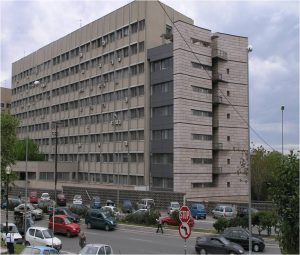
Aristotle University of Thessaloniki Dental School
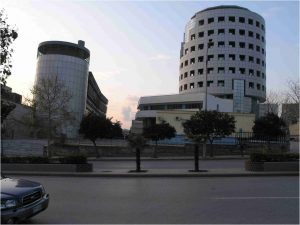
Aristotle University of Thessaloniki Newer Schools
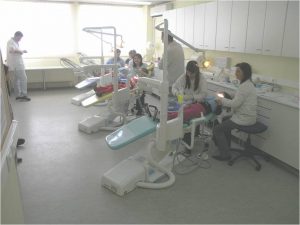
Old Undergraduate clinic
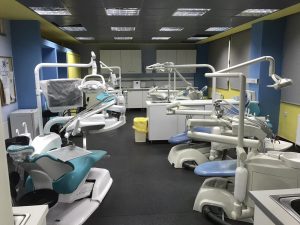
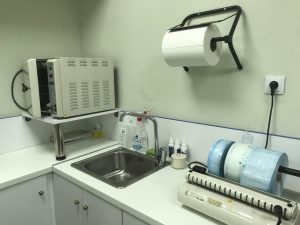
New Undergraduate Clinic
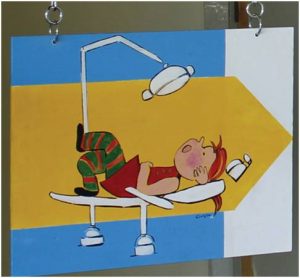
New patient direction
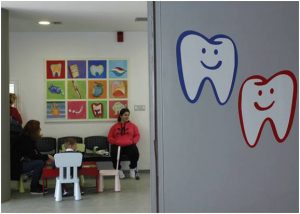
Postgraduate clinic entrance & waiting area
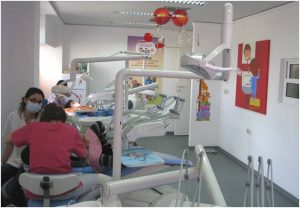
Postgraduate Clinic
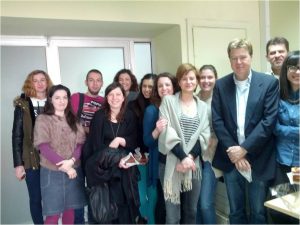
Visiting teacher Dr Veerkamp at New Year gathering
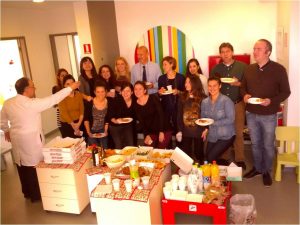
Christmas fest at clinic waiting area
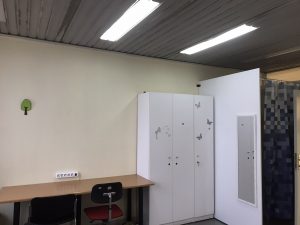
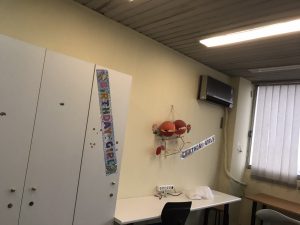
Postgraduate Students’ Restroom


